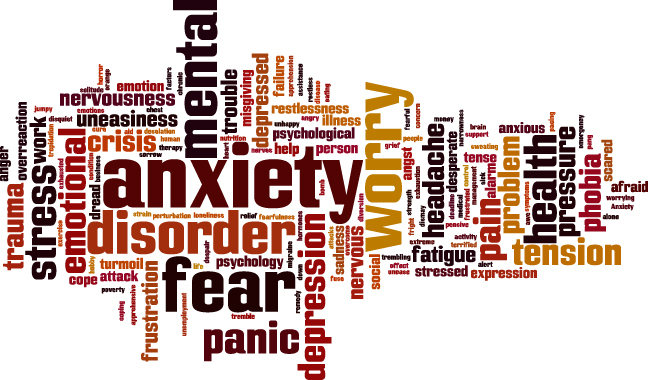
First of all,
Anxiety is a widespread mental health issue that impacts millions of individuals globally. It might show up as panic disorder, specific phobias, social anxiety, or generalized anxiety disorder, among other manifestations. While having occasional anxiety is common, chronic and severe anxiety can have a major negative impact on one’s quality of life. Thankfully, there are several of methods out there for people to deal with anxiety, from professional treatment to self-help approaches. This post delves further into these tactics with the goal of offering thorough advice on how to control and reduce anxiety.
Understanding Anxiety:
It’s important to comprehend the nature of anxiety before diving into techniques for conquering it. Excessive concern, fear, and trepidation about circumstances or occurrences in the future are symptoms of anxiety. Physical signs like sweating, shaking, elevated heart rate, and trouble breathing are frequently present. Everyone has anxiety episodes from time to time, but persistent anxiety can make it difficult to go about everyday tasks and have a number of negative impacts on both mental and physical health.
Self-Help Strategies:
1. Mindfulness and Meditation:
You can effectively manage your anxiety by practicing mindfulness and meditation. By focusing on the present moment without passing judgment, these techniques assist people in observing their thoughts and feelings without getting overcome by them. Frequent mindfulness meditation has been demonstrated to enhance general wellbeing and lessen symptoms of anxiety.
2. Deep Breathing Exercises:
These easy-to-do methods for lowering anxiety and soothing the nervous system are beneficial. The body’s relaxation response can be triggered by concentrating on taking calm, deep breaths, which can offset the physiological impacts of anxiety. Square breathing and diaphragmatic breathing are two methods that can be used anywhere, at any time, to instantly reduce anxiety symptoms.
3. Progressive Muscle Relaxation (PMR):
This method entails methodically tense and relax different muscle groups situated all throughout the body. Through intentional contraction and release of different muscle groups, people can encourage physical relaxation, which frequently results in a decrease in anxiety levels. Frequent PMR practice can improve a person’s ability to recognize and understand the tension and relaxation sensations in their body, which will help them better manage their anxiety.
4. Cognitive-Behavioral Techniques:
The goal of cognitive-behavioral therapy is to recognize and address the negative thought patterns that fuel worry. People can lower their overall anxiety level by learning to identify distorted or unreasonable thoughts and swapping them out for more realistic and balanced ones. Cognitive-behavioral techniques that can be used to treat anxiety include thought restructuring, thought challenging, and thought diaries.
5. Lifestyle Modifications:
Poor sleep, an improper diet, inactivity, and excessive alcohol or caffeine intake are a few lifestyle factors that might aggravate anxiety symptoms. Anxiety levels can be considerably reduced by implementing constructive adjustments in these areas. Reducing anxiety and improving mental health can be achieved by reducing stimulants, having a balanced diet, getting regular exercise, and prioritizing sleep.
Expert Assist:
1. Psychotherapy
Treatment for anxiety disorders, especially cognitive-behavioral therapy (CBT), is quite successful. In therapy, patients collaborate with a qualified therapist to pinpoint the root reasons of their anxiety and create coping mechanisms to control it. Treatments for anxiety include cognitive restructuring, systematic desensitization, exposure treatment, and other CBT approaches.
2. Medication:
To treat severe anxiety symptoms, a doctor may occasionally prescribe medication. Benzodiazepines, beta-blockers, and antidepressants are a few of the drugs that are frequently prescribed for anxiety disorders. These drugs lessen the severity of anxiety symptoms by controlling neurotransmitters in the brain. The best drug and dosage for each patient’s needs should be chosen in close consultation with a healthcare provider.
3. Support Groups:
Being a part of a support group can give people a sense of belonging and empathy since they realize they are not the only ones who deal with anxiety. Support groups provide a safe environment in which people can talk about their experiences, get support and guidance, and gain knowledge from others who have surmounted comparable obstacles. For those struggling with anxiety, local community groups, therapy groups, and internet forums can all be helpful resources.
In conclusion:
Treating the root causes of anxiety as well as its symptoms calls for a comprehensive strategy to overcome it. Through the integration of self-help techniques and expert guidance, people can acquire the abilities and assets required to proficiently handle anxiety. For those who are looking for anxiety reduction, there are many solutions accessible, including medication, mindfulness meditation, and cognitive-behavioral therapy. It’s feasible to overcome anxiety and have a happy life with commitment, tenacity, and help.






